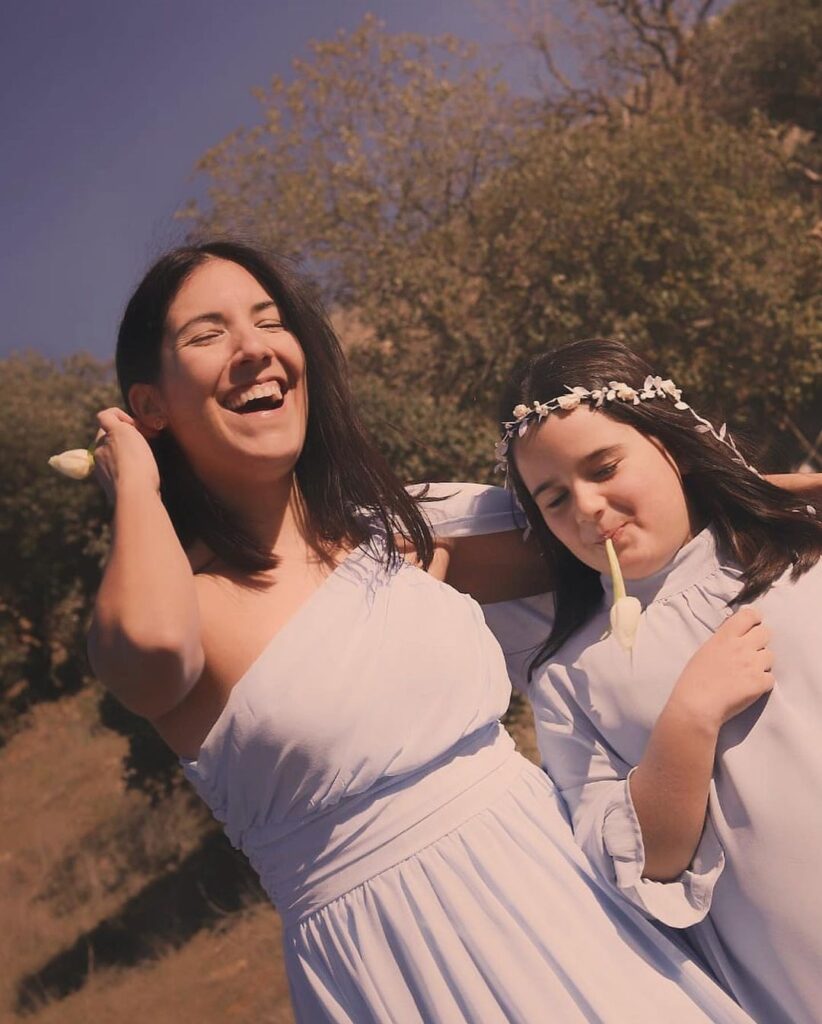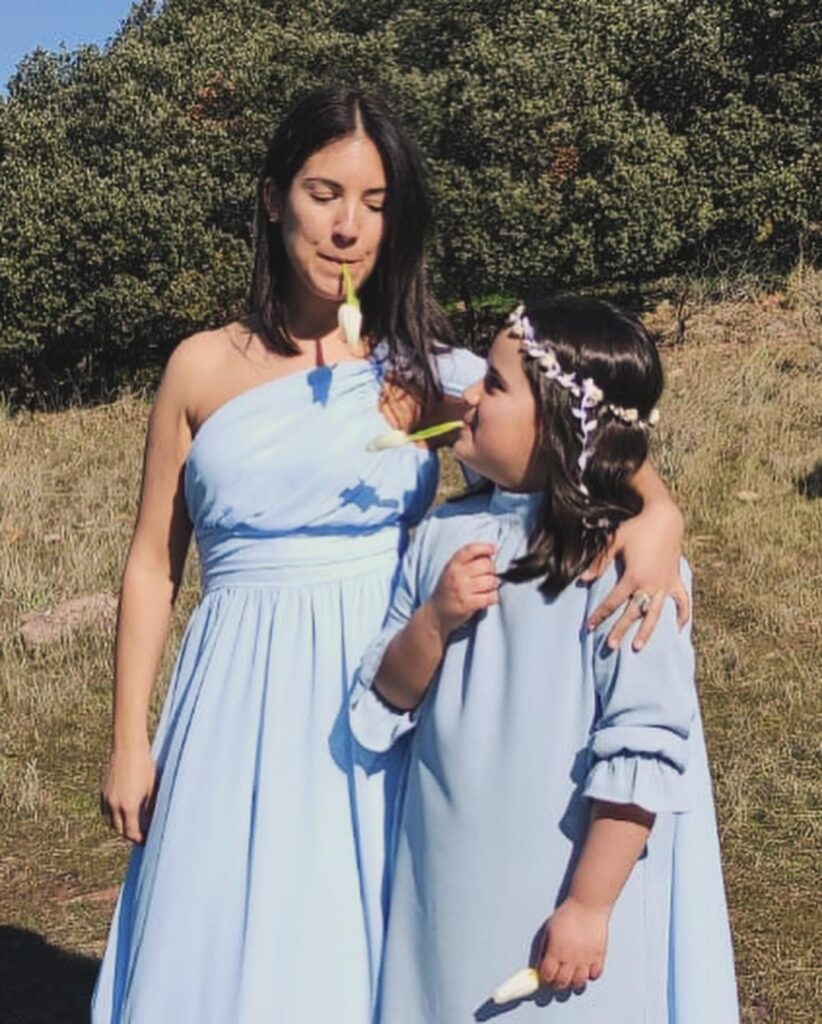Healing the Soul with Music: Emotional nourishment, resources and my experience with my songs.
Music has an incredible power to heal the soul healing the soul and influences the personal development and emotional nourishment of people.
As a creative person and PAS (Highly Sensitive Person) that I consider myself, I have experienced firsthand how music can be a powerful tool to overcome emotional challenges and find peace and healing.
In this article, I will share some personal stories about how I have used music to face those difficult moments in my life, and how this album ALCHEMY WITHIN is intended as a guide in times of uncertainty, where my songs can help others to do the same. This is my wish 🙂
How music can heal the soul
It is something we know intuitively, that music heals and has the unique ability to reach deep inside us and touch our innermost emotions. The lyrics of a song, its melodies or chords can resonate with our personal experiences and give us that emotional nourishment that we might not otherwise have known how to ask for or get.
With my experience it is clear to me that music can help us process and express our emotions in a way that simple words often do not reach, that is why I believe we all feel connected to it and use it in our daily lives because we need it, our soul needs it!
My personal experience
From an early age, music has been my refuge and my lifeline in times of anguish and confusion. My first memories with the piano are trying to communicate through the notes, when I was still very shy and had no words for the emotions I was going through.
In my adolescence, I suffered from eating problems such as anorexia and bulimia, as well as depression and music was always my faithful companion that helped me through these dark moments as a teenager. Even when I heard over and over again that music was useless, it was clear in my heart that I was born to serve it.
I remember discovering Amy Lee of Evanescence and Alicia Keys for the first time and falling in love with the idea of being like them, of communicating through piano and voice.
To hold on to this dream of being a beacon of light with my music. is what has allowed me to continue believing in myself when everyone around me told me that music was going to starve me to death and that it was a waste of time, and tried to convince me at all times that I was wrong and that I had to pursue another, more secure career.
There were several years that I actually quit the piano, I was still singing, but so much was the pressure at the conservatory and the pressure from my parents and teachers to prove that I was doing something else, that I gave up my dreams for a while. And this brought a lot of sadness…
As you can imagine, music called my heart again and I decided to go for it. I took up songwriting again and even traveled to London to study songwriting with the best.
But it was not until 2020, when my favorite person in the world, my grandmother Bernarda, passed away and I needed to go through all the emotions of grief. to be able to turn them into music (which was her passion as well) and I finally found the courage to show my own compositions to the world with the ALQUIMIA EP, released the week of her birthday in her honor, and of which my album ALQUIMIA INTERNA is the extension.
Without hesitation, this last experience served me as the most powerful therapy I have ever done, transforming all my pain into gold, alchemizing my emotions, so that I can bring you my experience so that it can serve you whenever you need it.

Tool for emotional development
We know that music has been an integral part of the human experience since time immemorial, playing a crucial role in rituals, celebrations, and everyday life. Its ability to evoke deep emotions and connect people to their feelings and experiences makes it a powerful tool that we can consciously use for our emotional development and emotional nourishment.
I would like to explore with you in more detail some known ways to use music to our advantage. use music to our advantage and very useful techniques to put them into practice from now on and take advantage of their full potential Are you ready?
1. For the expression and processing of emotions
A. Expression and Externalization of Feelings
Music offers an avenue for the expression of emotions that may be difficult to articulate in words. Playing an instrument, composing musicor even singing can serve as creative outlets for complex emotions such as sadness, anger or joy. Creating music allows people to externalize their feelings, which can be therapeutic and liberating.
Practical Example
Do you have to learn to sing or play an instrument? Plan to get into it this year, you’ll love the experience. And if it’s too big a plan, make it a point to learn that song you love and sing it at the top of your lungs! Enjoy.
B. Reflective Writing, Journaling or Songwriting
Writing regularly about thoughts, emotions and experiences can help you process and understand your emotions, as well as help you identify patterns of thought and behavior. This can be especially helpful in releasing repressed emotions and fostering self-awareness.
Practical Example
Write a song about a significant personal experience, start writing about what happened, how you felt and try to shape it into a song (you can write to me and I will help you).
C. Emotional Catharsis
Listening to music that resonates with our own experiences can induce a process of emotional catharsis. Music can act as a mirror of our own emotions, allowing for a healthy release of repressed feelings.
Practical Example
Create a playlist according to the emotion you want to externalize or enhance, with songs that evoke this chosen emotion. For example: “List of “Get Rage Out LOL” and choose about 10 songs that provoke and expand this emotion. Keep this list to use at those times when you need it, as a powerful tool to help you get through it. Let me know how the experience went!
Emotional Regulation
A. Stress and Anxiety Reduction
Numerous studies have shown that music can have calming and stress-reducing effects. Soft, slow music, in particular, can slow the heart rate and reduce cortisol levels, a hormone related to stress and very prevalent in PAS people, like me, who have the most sensitive nervous system.
Practical Example
Choose or create a playlist of relaxing music, which can be classical, chill out or ambient music, to use in times of stress or before going to sleep to facilitate relaxation.
B. Mood Improvement
We know that music influences our mood, why not use it with more awareness? Songs with a fast beat and positive lyrics can lift your mood and increase your energy levels. This can be especially helpful in times of low motivation or when facing emotional challenges.
Practical Example
Create a playlist with energetic and motivating music to use as a boost during physical activities or tasks that require an emotional push. For example: “Celebration List” and choose about 10 songs that make you feel happy, expanded and celebrating. And include it in your routine to support you on those days when you’re feeling low, such as a Monday.
3. Social Connection and Empathy
A. Strengthening Relationships
Music can be a powerful tool for strengthening relationships and building stronger emotional connections with others. Participating in group musical activities, such as choirs, bands or jam sessions, can foster a sense of community and belonging (as well as having a great time and releasing lots of endorphins!)
Practical Example
Consider joining a local music group or choir (or creating your own) just for the sake of trying a new experience or just to share. You can even simply organize a gathering of friends where you listen to a record up and down! You haven’t seen that for years and I’m sure you’ll love the experience.
For my part, I can propose you to join the listening party of my album, would you like to participate?
B. Development of Empathy
Music increases empathy, allowing people to understand and share the emotions of others (very important for our society) Simply listening to music from different cultures and genres will open your mind and a window to the diverse experiences and feelings of other people, promoting openness to understanding, compassion and empathy.
Practical Example
Spend half an hour exploring music from other cultures and genres, you will be surprised and delighted. You can start for example by doing a search for “music from Armenia”, see what you find and reflect on your discovery. (one of my favorite pianists is from there, his name is Tigran Hamasyan).

4. Mindfulness and Meditation
A. Mindfulness with Music
Incorporating music into mindfulness practices is known to increase the effectiveness of these techniques. Using music as a form of meditation, concentrating on each note and melody, helps to focus the mind and increase mindfulness.
Practical Example
Dedicate a few minutes a day to listen to music consciously, without distractions, paying attention to the sound details and the emotions it evokes. How long has it been since you’ve done this? It is wonderful.
B. Guided Meditation with Music
Use it in guided meditation to facilitate relaxation and concentration. Soft instrumental music or nature sounds can provide a relaxing background for meditation.
Practical Example
Use a meditation app that incorporates relaxing music or create a playlist with instrumental music you love to accompany your daily meditation. If you feel like it, you can incorporate my song ALLOW in your meditation or yoga practice, I already have several people who have told me that they use it as if it were a mantra and it makes me very very happy!
Related resources and authors
These are just a few examples of resources and authors who have explored the use of music for emotional development and emotional release. Exploring these authors can provide deeper insight into how music can be used as a powerful tool to promote emotional well-being and mental health.
Daniel Goleman
Author of “Emotional Intelligence,” Goleman is one of the leading experts in the field of emotional intelligence and has written extensively on how to understand and manage emotions.
Brené Brown
Researcher and author of several books on vulnerability, shame and resilience, including “The Gifts of Imperfection” and “Daring Greatly”.
Tara Brach
Psychotherapist and author of “Radical Acceptance” and “True Refuge,” Brach combines Buddhist wisdom with Western psychology to offer practical tools for emotional management and well-being.
Elsa Punset
“The Book of Small Revolutions”, “A Backpack for the Universe”.
Elsa Punset is one of the most recognized figures in the field of emotional intelligence in Spain. His books and lectures focus on providing practical tools for emotional management and personal development.
Jorge Bucay
“Let Me Tell You,” “The Trail of Tears.”
Although Argentinian, Bucay is very influential in Spain and his work focuses on personal and emotional development. Her books combine storytelling and therapeutic teachings to help readers face their fears and find their way.
Marian Rojas Estapé
“How to make good things happen to you.”
Description: Psychiatrist and author, Marian Rojas Estapé offers a perspective based on neuroscience and psychology to understand how our emotions and thoughts affect our daily lives and how we can manage them to improve our well-being.
Other interesting books
Musicophilia” by Oliver Sacks:
In this book, renowned neurologist Oliver Sacks explores the transformative power of music on the human brain and how music can influence our emotions, thoughts and behaviors.
The Healing Power of Music” by Dan Cohen.
Cohen, founder of the nonprofit Music & Memory, explores how music can be used as a therapeutic tool to improve the quality of life for people with dementia and other mental health conditions.
The Healing Power of Music: How Music Therapy Promotes Health, Rehabilitation, and Well-Being” by Michael J. Silverman:
This book provides a comprehensive overview of music therapy and how it can be used to promote emotional health, rehabilitation, and wellness in a variety of clinical and community settings.

Conclusion
Music is a versatile and powerful tool for our mental and emotional development.. Whether through creative expression, emotional regulation, enjoyment or its use in mindfulness practice, music offers multiple ways to calm us, to give voice to our emotions, fill us with pleasure and enrich our emotional lives. Incorporating music into our daily routines can not only improve our emotional well-being, but also foster greater connection with ourselves and others.
For me as a creative artist, it seems fundamental to nurture this connection that can be generated with music to take care of each other, each in our own way, building a kinder, more caring and compassionate world.each in our own way, building a kinder, more caring and compassionate world.
I hope you enjoyed the article.
Tell me, what did you like the most?
What practice are you going to implement this week?
I read you.
A hug, Julia.